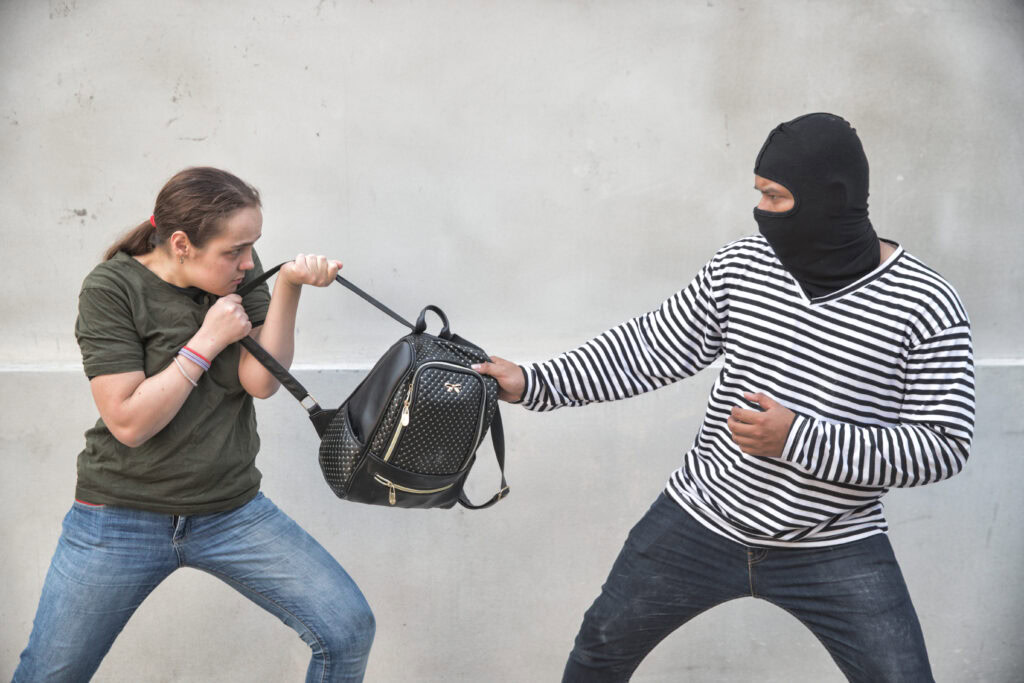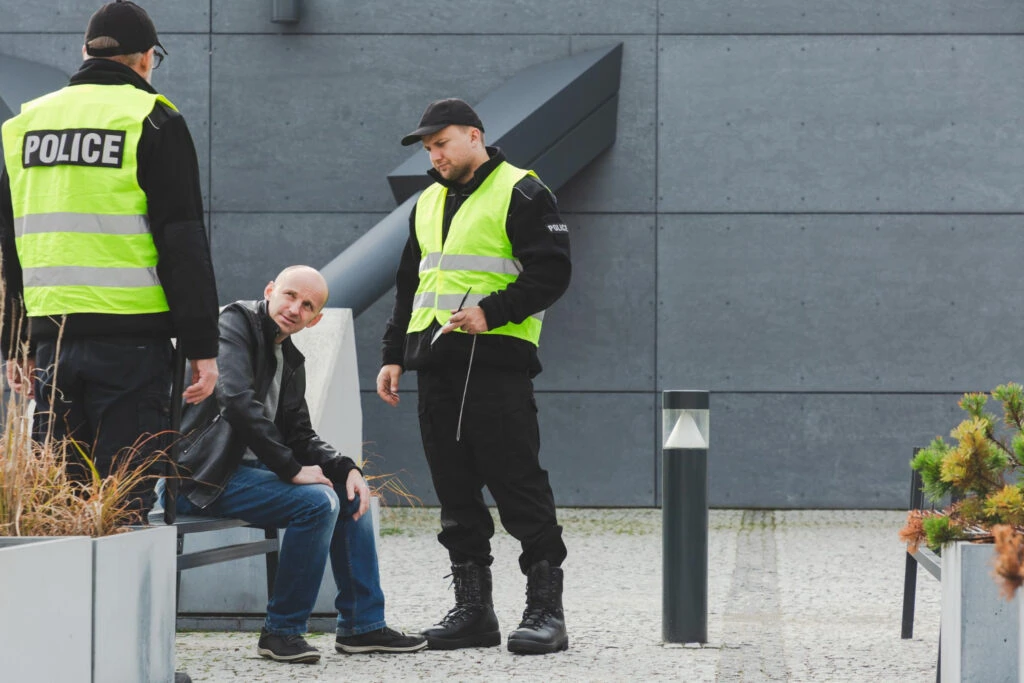Short answer: Yes, you can go to jail for self-defense in California if the force you used was considered unreasonable or unnecessary under the law. While self-defense is a legal right, it’s not a guarantee of immunity from arrest or prosecution.
California law recognizes the right to defend yourself or others from harm. However, if prosecutors or police believe you used excessive force, or acted unlawfully, you could still face criminal charges even if you thought you were protecting yourself.
This article breaks down California’s self-defense laws, provides real examples, and explains why you could still end up in jail depending on how and when force was used.
Self-Defense Laws in California
Under California Penal Code § 198.5 and § 197, self-defense (or defense of others) is legal when a person uses force, including deadly force, because:
- They reasonably believed they or someone else was in imminent danger of being killed, seriously injured, or unlawfully touched
- They reasonably believed that immediate use of force was necessary to defend against that danger
- They used no more force than necessary to defend against the threat
This definition comes directly from CALCRIM No. 505, the California jury instruction for self-defense in homicide cases.
In short, self-defense isn’t about what you felt, but what a reasonable person in your situation would have done.
Real-World Examples of Self-Defense Cases
To better understand when self-defense is justified (and when it’s not), consider these scenarios:
- Example 1: Justified Force
A woman is walking alone at night when a man corners her and reaches into his pocket while threatening her. She stabs him with a pocketknife. She may be justified in using deadly force if it was reasonable to believe her life was in danger. - Example 2: Excessive Force
A man shoves another during a verbal argument. In response, the other man pulls out a gun and shoots him. This may not be justifiable self-defense because the force used was likely excessive and the threat was not imminent or life-threatening.
These examples show that even if you feel threatened, using disproportionate force could still result in charges like manslaughter or murder.
Can You Go to Jail for Killing Someone in Self-Defense?
Yes, you can go to jail for killing someone even if you acted in self-defense if the court finds your actions didn’t meet the legal standards.
Prosecutors might argue:
- You started the fight or provoked the other person
- You had a chance to escape or de-escalate the situation
- The threat wasn’t imminent or serious
- You used more force than necessary
Even if you believe you were defending yourself, the police may arrest you while they investigate the case. You could be held in jail until evidence supports your self-defense claim or until a court resolves the matter.
So how long can you go to jail for self-defense in California?
If your actions don’t qualify as lawful self-defense, you could face charges ranging from voluntary manslaughter (3 to 11 years in prison) to second-degree murder (15 years to life). How long you go to jail depends on:
- The severity of the charges
- Whether there’s prior criminal history
- Whether the killing is ruled as imperfect self-defense (where the belief in danger was honest, but unreasonable)
Is California a “Stand Your Ground” State?
Yes, California is a Stand Your Ground state. This means that you do not have a legal duty to retreat if you’re attacked, as long as:
- You are in a place where you have a legal right to be
- You’re not engaging in illegal activity
Under this law, you can defend yourself using force, even deadly force, without first trying to flee if you reasonably believe it’s necessary to prevent serious harm or death.
But remember, this does not give you a blank check to use violence. The force must still be proportional and reasonable.
What Is the Castle Doctrine?
California also follows the Castle Doctrine, which offers added legal protection when force is used inside your home.
Under Penal Code § 198.5, if an intruder unlawfully enters your home, and you reasonably believe they intend to commit a felony or cause harm, you’re presumed to have acted in self-defense if you injure or kill them.
Key points:
- The person must have forcibly entered your home
- You must have reasonably believed they were going to harm you or commit a felony
- The Castle Doctrine does not automatically apply outside your home (such as in your yard or on the street)
This can be a powerful legal shield, but like all self-defense laws, it has limits.
What Are the Legal Defenses to Self-Defense Charges?
If you’re charged with a crime after claiming self-defense, your attorney may raise one or more of these defenses:
- You acted in reasonable self-defense – All three CALCRIM 505 conditions are met
- You were defending someone else – The same rules apply if you were protecting another person
- Imperfect self-defense – You genuinely believed you were in danger, but that belief was objectively unreasonable. This could reduce a murder charge to manslaughter
- You were in your home – Castle Doctrine may apply if an intruder broke in
- You didn’t initiate the conflict – Or, you tried to walk away, and the other person escalated the situation
Your defense will depend on the facts, your history, witness testimony, physical evidence, and the credibility of your version of events.
How Long Can You Go to Jail for Self-Defense?
We touched on this earlier, but it bears repeating: if your self-defense claim fails, how long you go to jail for self-defense depends on the charges.
- Voluntary manslaughter: 3, 6, or 11 years in state prison
- Second-degree murder: 15 years to life
- Assault with a deadly weapon: 2 to 4 years in state prison
You may also face civil lawsuits from the injured party or their family even if criminal charges are dropped.
This is why having legal representation early in the process is so important.
How a Criminal Defense Attorney Can Help
A skilled California criminal defense attorney can:
- Evaluate whether your actions meet the legal definition of self-defense
- Investigate the scene, collect evidence, and interview witnesses
- Present expert testimony such as use of force experts
- Negotiate with prosecutors to reduce or dismiss charges
- Defend you aggressively in court if the case goes to trial
Don’t assume the truth will speak for itself. Even clear-cut self-defense cases can be misinterpreted without the right legal strategy.
Conclusion
So, can you go to jail for self-defense in California? Yes, if prosecutors believe your actions went beyond what the law allows. Self-defense must be reasonable, necessary, and proportionate.
Understanding the laws surrounding deadly force, Stand Your Ground, and the Castle Doctrine can protect your rights, but the best protection is early legal guidance.
If you or a loved one is facing charges after defending yourself, don’t wait. Contact an experienced California criminal defense attorney today for a free consultation. Your freedom may depend on it.










